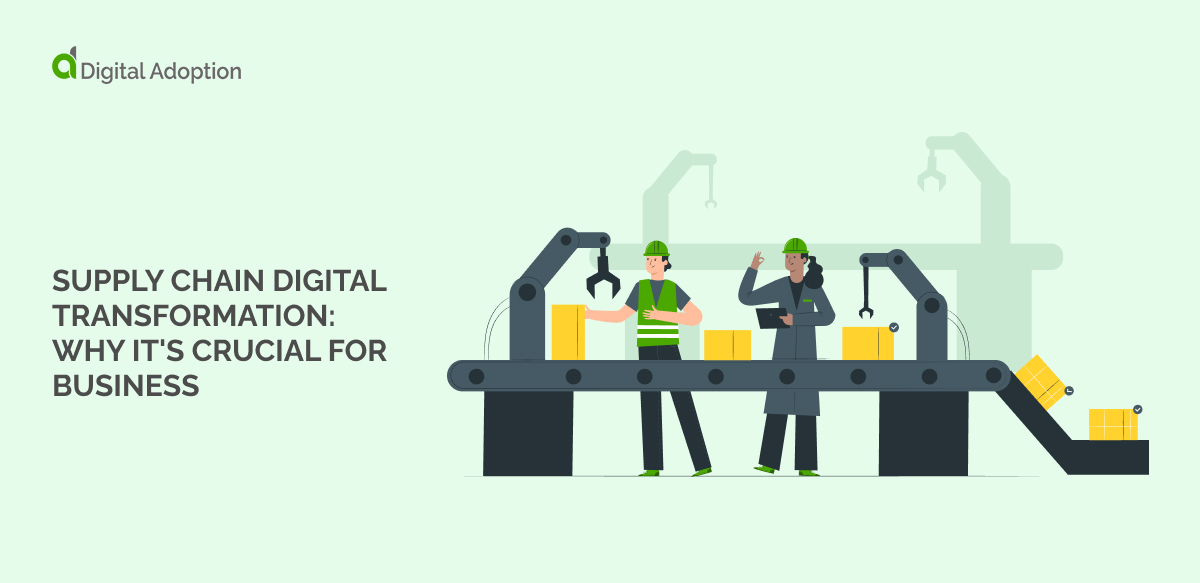A CIO job description can tell you what employers expect and need from their Chief Information Officer – but this role is rapidly evolving and it will continue to change for years to come.
What do CIOs really need to succeed in the modern organization?
Below, we’ll go beyond a job description and learn how this job role is changing and what skills CIOs need to add value, stay relevant, and meet their employers’ expectations.
CIO Job Description: A Breakdown
To better understand what it takes to become a successful CIO, let’s look at some examples of employers’ expectations:
Responsibilities
Here are examples of the types of duties that will be included in a CIO job description:
- Supervises the implementation and maintenance of digital tools and software across the organization
- Develops and leads digital transformation strategies
- Maintains and updates IT infrastructure and systems
- Procures IT products and services and maintains relationships with IT vendors
- Designs, executes, and manages IT-related projects
- Developing and updating IT budgets
- Creating and implementing cybersecurity programs
- Staying updated on current and emerging technology trends
- Recruiting, selecting, hiring, and managing IT teams
Traditionally, CIO jobs have been more technical in nature.
Although CIOs are still responsible in large part for the delivery and management of IT services, many businesses now expect CIOs to be involved in digital business strategies. As we’ll see below, this will become more and more a part of the CIO’s mandate in years to come.
Required Experience and Education
CIOs are executives, so it should come as no surprise that they must have strong backgrounds, both in terms of education and job experience.
Experience requirements often include:
- Minimum bachelor’s degree, graduate degree preferred
- 5-15 years experience working as a manager or business executive
- Certifications in relevant IT systems and software
- Experience working in the employer’s industry
- Proven successful implementation of IT projects
Naturally, as with all of the other sections covered here, the exact job requirements will depend heavily on the organization doing the hiring.
Required Skills
In addition to the IT experience and requirements mentioned above, most CIO job descriptions will emphasize the need for other skills, such as:
- Demonstrated leadership and managerial skills
- The ability to understand and translate complex technical concepts
- Effective verbal and written communication skills
- The ability to network, build, and maintain interpersonal relationships
- Initiative and self-motivation
- Strategic thinking and a strong business mindset
Since the CIO is becoming a hybrid position that combines business and IT, skills such as those listed here are becoming more and more important. A technical background is also a must, but CIOs will need to expand their skill sets in order to stay relevant in the years ahead.
Beyond Job Descriptions: The Skills You Need to Succeed as a CIO
Many IT professionals have pointed out that the role of the CIO is evolving rapidly.
This shift in CIO responsibilities is due in large part to the digital revolution. Whereas digital technology used to be a back-office function, today it is a competitive differentiator – but only if companies can fully leverage that technology.
IT leaders, such as CIOs, are being called upon to ensure that businesses can use technology to innovate and become leaders in their field.
Among other things, CIOs will be increasingly expected to lead:
- Digital transformation initiatives. Digital transformation programs have become a driving force in the digital economy. On a global level, digitization and digitalization are transforming the way markets operate. Within individual businesses, digital transformation changes the way workplaces operate. To keep up in this fast-paced world, CIOs must be able to take the helm and lead digital transformation projects.
- Cultural shifts. Gartner has suggested that not only will CIOs be responsible for business outcomes, they will lead cultural change as well. Culture, after all, is yet another area of business that is being changed by digital technology. Companies that have digital-friendly attitudes and digitally savvy workers will be more likely to succeed in the digital era. Since CIOs are the bridge between business and IT, they are a good choice to lead and manage digital-first cultural change projects.
- Organizational change. Digital transformation is one type of organizational transformation. As companies become more digitally mature, they will undergo a number of changes. CIOs will need to understand how to effectively lead and manage structured change projects. The better CIOs are at leading change projects, the more agile and nimble the organization will become.
- Digital adoption programs. Effective, efficient digital adoption is a must for every modern organization. After all, employees must constantly be learning new tools and software. Streamlining adoption, onboarding, and training is essential to improving workforce output and productivity. CIOs will often be responsible for creating and leading digital adoption efforts.
To effectively drive programs such as these, CIOs will need a comprehensive set of both technical skills, leadership skills, and business skills, as mentioned above.













